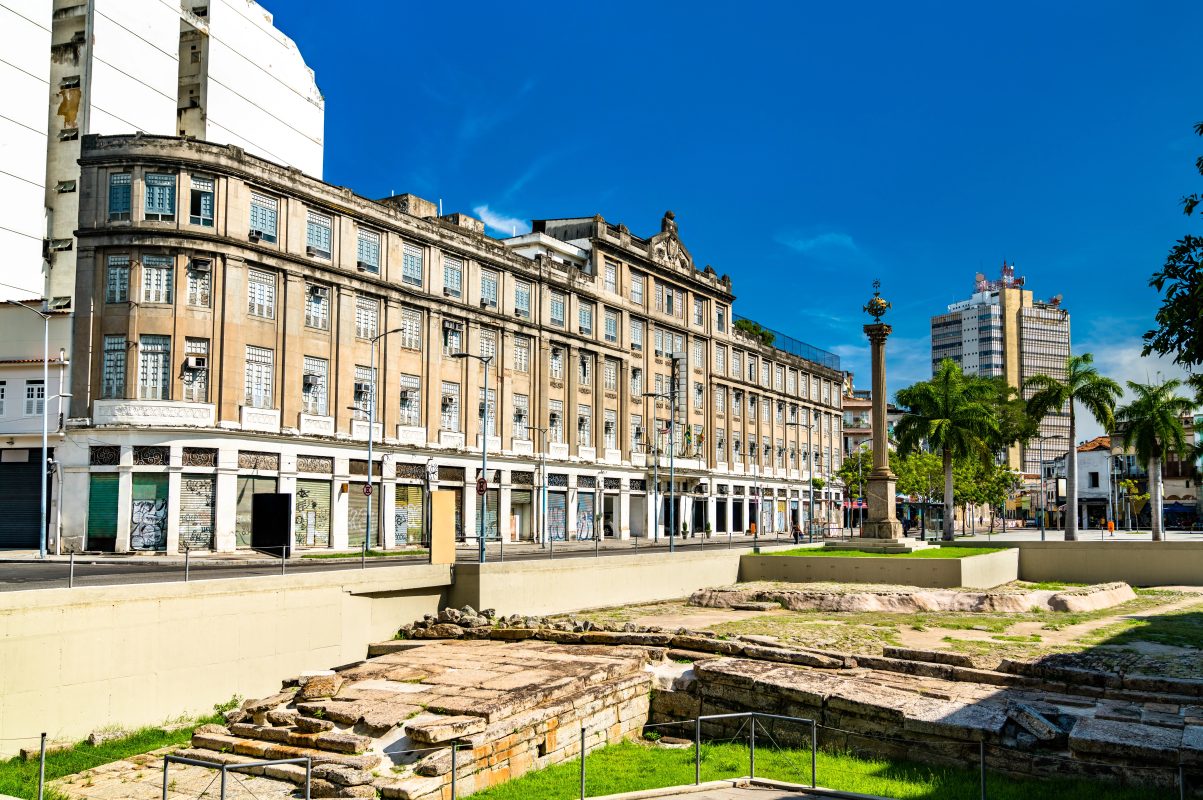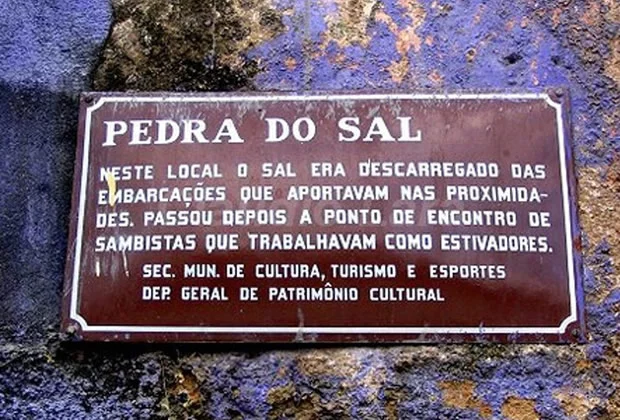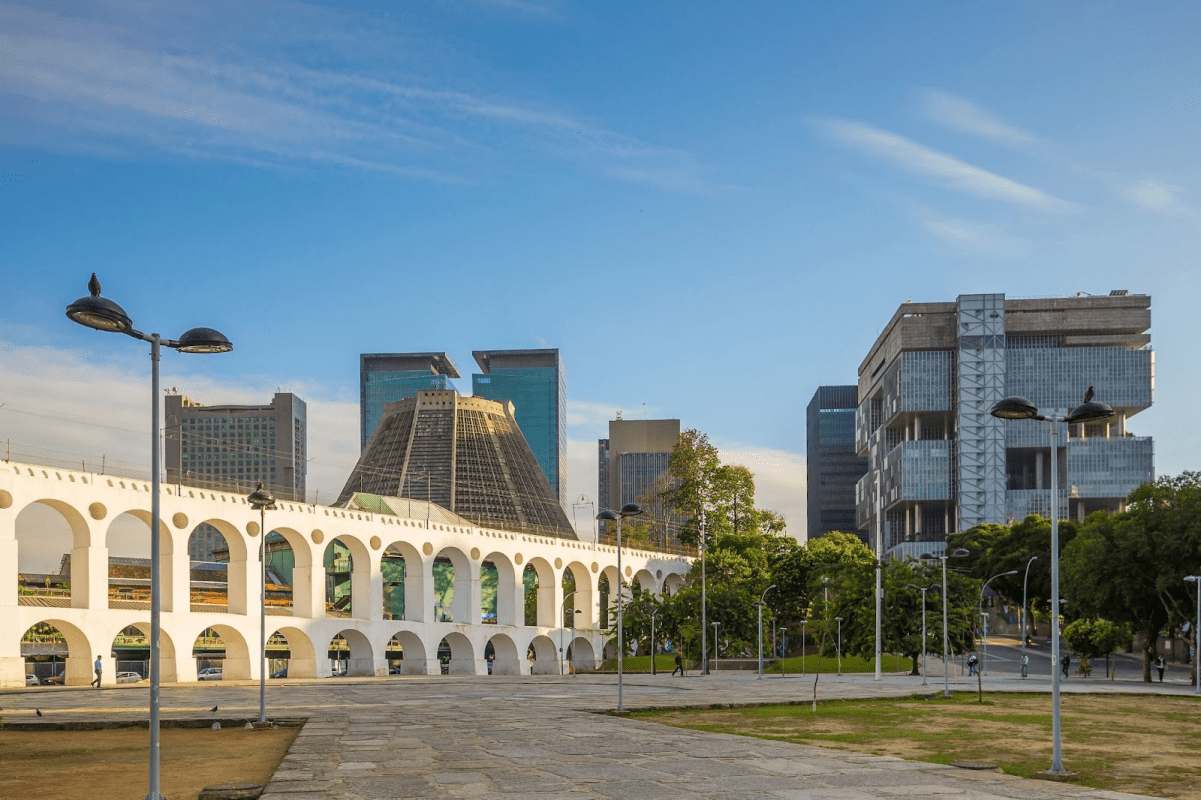Crédito: Depositphotos
Afro-tourism in Rio de Janeiro is gaining increasing prominence as a form of travel that connects history, culture, and identity. In addition to its natural beauty, the city holds memories and traditions that value African heritage in Brazil. And it is no coincidence: in 2025, Rio was voted the best Afro-tourism destination in the country by a panel of experts, according to O Globo.

In addition, Black Awareness Day, celebrated on November 20, became a national holiday in 2023, reinforcing the importance of reflecting on and valuing the contribution of black people in the formation of our society. For those looking for Afro-tourism tours in Rio, there are several transformative experiences.
What is Afro-tourism?
Before planning your itinerary, it is important to understand what Afro-tourism is. It is a travel movement that values the culture, territories, and histories of the Black population. In Brazil, it is a way of recovering erased narratives, promoting inclusion, and recognizing the African legacy in our identity.

Crédito: Depositphotos
Afro-tourism tours in Rio de Janeiro
For those who want to immerse themselves in this experience, there are some unmissable itineraries in the capital of Rio de Janeiro.
- Museum of Afro-Brazilian History and Culture (MUHCAB): located in the port area, it is a space dedicated to celebrating the black presence in Brazil and its cultural expressions. From Tuesday to Sunday, admission is free. Check out the latest news on the museum’s social media.
- Instituto dos Pretos Novos: an important memorial center, it was built on the site of the largest cemetery for enslaved Africans in the Americas. The institute offers guided tours of Little Africa, as well as courses and workshops. Check out the schedule on the official website.
- Valongo Suspended Garden: a testament to the time when Valongo Wharf received slave ships. Today, it is a UNESCO World Heritage Site. The space hosts exhibitions and cultural programs, which you can check out on the official channels.
- Morro da Conceição and the Port Area: historic streets and hillsides that preserve the essence of colonial and post-abolition Rio.
- Praça Mauá: revitalized, it connects the port’s past with contemporary cultural spaces, such as the Rio Art Museum.
- Samba na Pedra do Sal: the birthplace of Rio samba, where black Rio music echoes every week in vibrant circles.
These Afro-tourism itineraries not only bring back memories, but also invite visitors to experience the city in a profound and emotional way.
Afrotourism and the city’s living culture
However, afrotourism in Rio de Janeiro is not limited to the past. It is also present in the living culture, especially in Rio’s black music, cuisine, and popular festivals. From traditional samba to Rio funk, from feijoada to jongo circles, each experience is an invitation to connect with Afro-Brazilian identity.
For those who want to experience even more, it is worth following @pretoviajante on Instagram, a reference in Afro-tourism itineraries throughout Brazil. Another great option is to visit the Feira das Yabás in Madureira, always on the second Sunday of the month, which celebrates Afro-Brazilian cuisine and culture. Also in the neighborhood, the traditional Baile Charme de Madureira is a cultural and musical meeting point.
In the South Zone, Tia Cida’s classic feijoada in Glória is a must for those who want to savor tradition and affection in an urban quilombo. And, of course, be sure to check out the calendar of Rio’s samba schools, where the beat of the tambourines keeps the city’s African cultural heritage alive.

Crédito: Sambando
Where to stay to enjoy this experience
When choosing to stay at the Ipanema Inn, visitors will find a boutique hotel in the heart of Ipanema, with easy access to the subway and the main areas of the city. This makes it possible to explore both the iconic beaches and the Afro-tourism circuits in Rio de Janeiro, experiencing the best of the local culture.

Whether on Black Awareness Day or at any other time of the year, this is an opportunity to travel with purpose, learn about stories that transform, and appreciate the diversity that shapes Brazil.
Read also:
Samba circles in Rio de Janeiro
Praça Mauá: best tours in the region
Best tours in downtown Rio de Janeiro
FAQ:
What is Afro-tourism in Rio de Janeiro?
Afro-tourism refers to tourism that values the culture, territories, and histories of the Black population. Afro-tourism itineraries in Rio de Janeiro include both notable tourist and historical sites that preserve memories of the past, as well as visits to museums, fairs, and cultural centers that showcase Black protagonism today.
Where is Little Africa in Rio?
Little Africa in Rio de Janeiro is located in the city center, in the port area, covering the neighborhoods of Gamboa, Saúde, and Santo Cristo. It was through the ports of this region that slaves arrived in Brazil in the past.
What Afro-tourism tours are worthwhile in Rio de Janeiro?
The Little Africa region is full of incredible tours. We suggest taking the guided tour of the main points, conducted by the Instituto dos Pretos Novos. Climbing Morro da Conceição for a leisurely stroll is also very worthwhile! Finally, enjoy the classic samba circle at Pedra do Sal.
Where to stay to explore Afro-tourism in Rio?
The main tourist attractions on the Afro-tourism itinerary in Rio de Janeiro are located in the city center. It is important to stay in places that have good transport links to the center. The Ipanema Inn is a perfect option for those who want to combine urban and cultural tourism in Rio with the natural beauty of Ipanema beach, Rodrigo de Freitas Lagoon, and other postcard locations in the southern part of the city.

